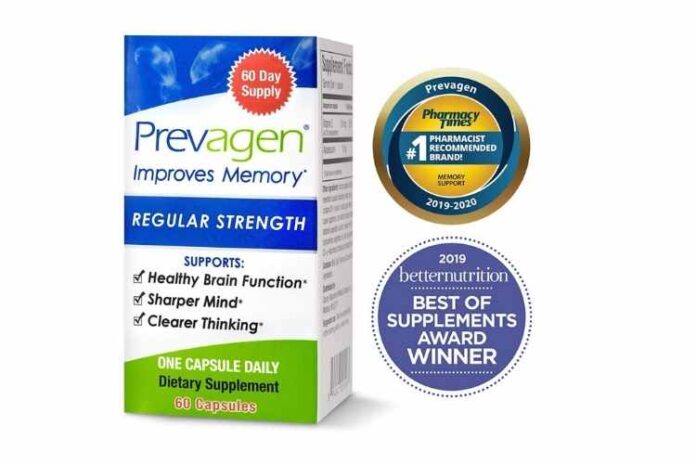You’ve probably heard the many ads that seem to flood media regarding Prevagen. The manufacturer touts Prevagen as a brain and memory supplement, but does that hold up?
Below, we go over what happens when you take the supplement and information about Prevagen reviews and side effects to be aware of.
The Effects of Prevagen
Prevagen is an over-the-counter supplement. The makers claim taking it can help improve your memory and brain health, but evidence and research are limited. The supplement is not FDA-approved because supplements aren’t regulated in the United States. You shouldn’t use Prevagen if you have a serious memory problem like Alzheimer’s.
When you take Prevagen, it contains different amounts of an ingredient called apoaequorin and vitamin D3. Apoaequorin is a protein originally found in jellyfish.
The supplement has three strengths—10, 20, or 40 mg.
Our bodies make Vitamin D with sun exposure, or you can get it from food or supplements. In a study from 2017, there was a link between vitamin D deficiency and visual memory loss. Vitamin D can have a number of other health benefits, including reducing symptoms of mental illness and promoting healthy immune function.
Apoaequorin is a protein that acts similarly to calmodulin. Calmodulin is a protein in our bodies thought to play a major role in memory.
When you take Prevagen, the makers say it helps with mild memory loss, a normal part of aging. The way it’s supposed to work is by binding to excess calcium in the brain. The apoaequorin is a protein that binds to calcium. Dysregulated calcium levels may lead to memory loss, so binding to it could regulate these levels and promote better cognitive health, at least according to the supplement makers.
Is There Evidence to Support Prevagen’s Claims?
Quincy Bioscience is the company that makes Prevagen. The company published a small study in 2016, looking at using 10 mg of apoaequorin a day compared to a placebo. A placebo has no medicine in it. The study ran for 90 days.
All the participants identified themselves as having a memory problem, but none had a serious memory condition like dementia or Alzheimer’s.
At the end of the study, according to Quincy Biosciences, the people who took the apoaequorin supplement had higher scores than those who got a placebo on tests to measure memory.
That study is what Quincy Bioscience has based all of its marketing on, describing its product as clinically proven. Unfortunately, the research study had flaws.
One big flaw is that it only had just over 200 participants, which is considered a small group to try and show the supplement’s effectiveness for the general population. The study only ran for 90 days, so we don’t know anything about the long-term safety of the supplement.
Some experts have pointed out another flaw with the research. They say the tests used by researchers in the study to assess memory aren’t the standard tests a healthcare provider uses to diagnose memory loss conditions.
One of the biggest potential flaws with Prevagen aside from the limited research, is that apoaequorin is thought to break down in the digestive tract, which is true of other proteins. That means little of the ingredient is likely to cross the blood-brain barrier, rendering it ineffective.
Prevagen Is Not a Nootropic
Since it is so heavily advertised and marketed, people often wonder if they’ll feel immediate effects from using Prevagen. The answer is no.
The supplement makers recommend taking it for 90 days to see the full benefits, and unless you have memory loss, it’s unlikely you’d notice any benefits of using it.
It’s not a nootropic, either. Nootropics are so-called smart drugs that are used as a way to improve your mental performance.
Examples of nootropics that may work somewhat quickly after taking them include L-theanine, creatine, and bacopa monnieri.
Final Thoughts
So, what happens when you take Prevagen? Possibly nothing. There’s little evidence that Prevagen can make its way to your brain, where it would need to go to help your memory and cognition. You might even experience some side effects when using Prevagen, like nausea or dizziness, but possibly very few beneficial effects on memory.


